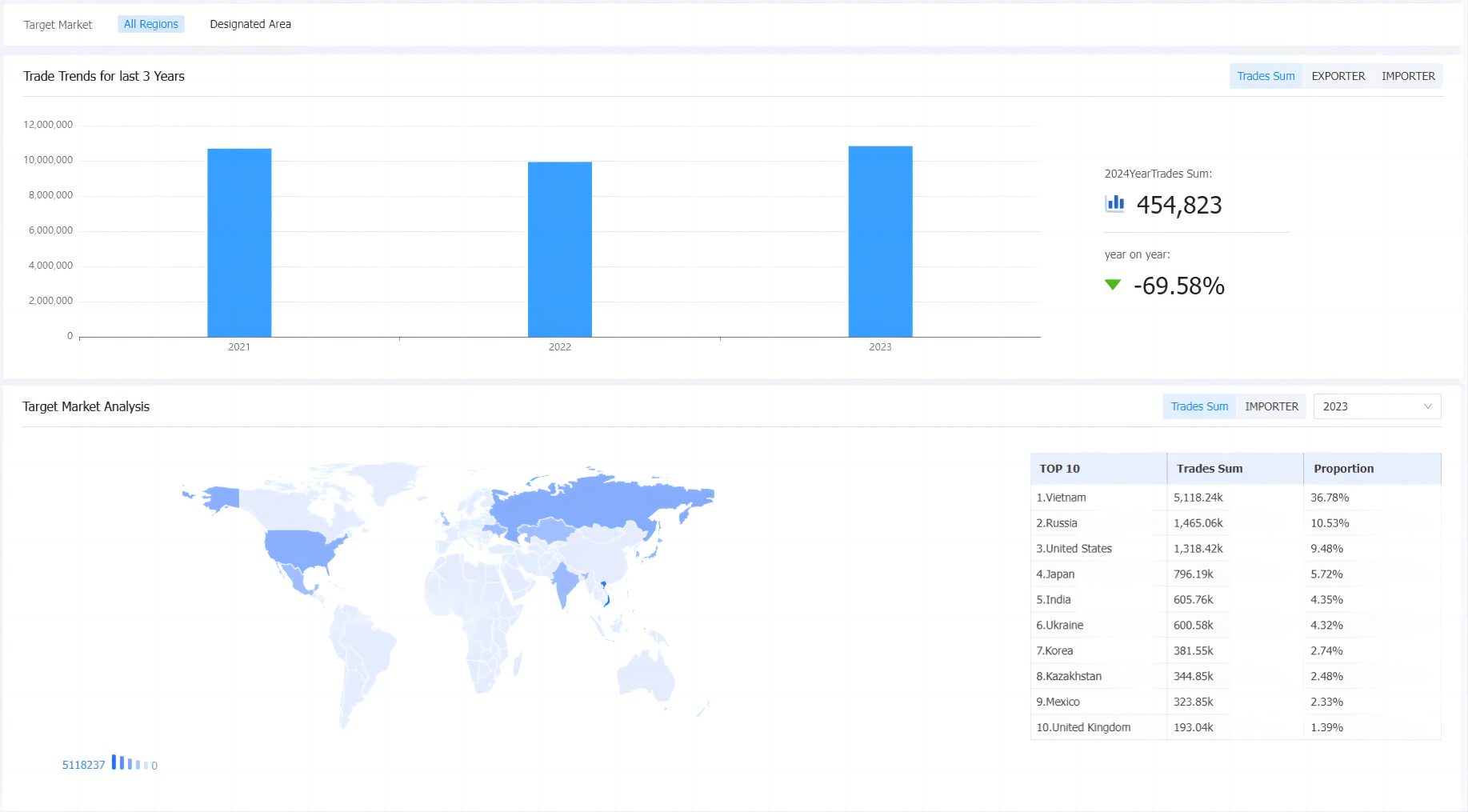 Export News
Export News
 22-02-2024
22-02-2024
On December 11, 2001, China officially joined the World Trade Organization, marking the first step of Chinese manufactured automotive products entering the global automotive consumer market. Over the past 23 years, the business model primarily focused on the export of complete fuel vehicles, key automotive components, and accessories. However, within the span of just one generation, the Chinese automotive industry has evolved from a novice to a skilled craftsman. Currently, China's new energy vehicles and their industrial chain are composing a new chapter in going global: Export → Go Global → Globalization.
Now, the internationalization trilogy of China's new energy vehicles and their industrial chain has entered the second chapter – the "Go Global" phase. After honing their competitiveness in the domestic market, intelligent electric vehicle brands with significant product competitiveness have entered overseas markets. This is complemented by novel sales and after-sales service models. Meanwhile, partners in the fields of intelligent driving and smart cabins, providing supporting services, are collectively establishing a new image for Chinese manufacturing brands.
According to CCTV reports, in 2023, China's exports of "new three items," represented by new energy passenger vehicles, solar cells, and lithium-ion batteries, exceeded 1.06 trillion yuan, breaking the trillion-yuan mark for the first time, with a growth rate of 29.9%, leading in international market share. In the future, as a booming industry, new energy vehicles will continue to lead the development of the Chinese automotive industry. Continuous innovation and improvement in technology, quality, and services will inject new momentum into the sustainable development of Chinese smart manufacturing brands.
For a long time, the European market, with its strict environmental regulations and consumer pursuit of high-quality vehicles, has been a formidable fortress for Chinese automotive brands to conquer. However, relying on innovative technology, high-quality products, and flexible market strategies, China's new energy vehicles have successfully overcome this barrier, showcasing the enhanced competitiveness of Chinese automotive brands on a global scale.
Nevertheless, the success of China's new energy vehicles in the European market is just the beginning. In the long run, expanding into this market will bring valuable development opportunities for Chinese automotive brands. Through in-depth interaction with the European market, Chinese automotive brands can more directly understand the needs and expectations of European consumers, thereby optimizing product design and enhancing service quality more effectively.
Simultaneously, industries such as battery technology, intelligent driving, and charging facilities will also encounter new development opportunities. This will provide robust impetus for the overall upgrading and transformation of the Chinese automotive industry, further enhancing its international competitiveness.
"As the saying goes, 'one hundred feet of pole, take one step further.' In the future, with China's new energy vehicles and supply chain manufacturers establishing deeper and broader roots in the European market, Chinese new energy vehicles are bound to move steadily towards greater achievements.

Global Import Export Data Can Play a Crucial Role in Supporting China's New Energy Vehicles Going Global:
· Market Insights and Selection: By examining global import export data,
insights into the import demands and market sizes of new energy vehicles
worldwide can be gained. This aids exporters in choosing the most promising
destinations, optimizing market strategies, and better meeting the demands of
diverse markets.
· Competitor Analysis: Through global import export data, exporters can obtain information about competitors' import and export situations, market shares, and product positioning. This helps in formulating more competitive strategies, understanding key players in the market, and effectively dealing with intense international competition.
· Product Pricing and Positioning: Global import export data include information on the price trends and market positioning of new energy vehicles. Exporters can use this data to adjust product prices, formulate more competitive pricing strategies, and better meet the requirements of target markets.
By comprehensively utilizing this global import export data, Chinese exporters of new energy vehicles can more precisely identify target markets, formulate effective strategies for going global, and enhance the international market competitiveness of their products. Through in-depth analysis and utilization of global import export data, exporters can better understand the dynamics of international markets, make informed decisions, and promote the overseas development of new energy vehicles.

Category
Leave Message for Demo Request or Questions


 T-info
T-info T-discovery
T-discovery

 My
Tendata
My
Tendata Market Analysis
Market Analysis Customer
Development
Customer
Development Competitor
Monitoring
Competitor
Monitoring Customer Relationship
Customer Relationship





































































































































